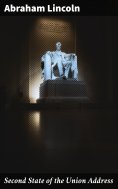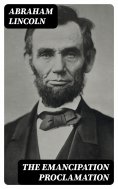Abraham Lincoln's Second Inaugural Address
Über das eBook
Abraham Lincoln's Second Inaugural Address is a poignant and powerful speech delivered by the 16th President of the United States during his second inauguration on March 4, 1865. Known for its profound reflections on the Civil War and the need for national healing and reconciliation, Lincoln's address stands as a seminal piece of American oratory that continues to resonate with readers today. The speech is written in a clear and dignified prose style, showcasing Lincoln's mastery of language and rhetoric. Its inclusive tone and emphasis on charity towards all foreshadow the themes of unity and forgiveness that would define the country's reconstruction period. This address remains a significant piece of political and historical discourse, offering insight into Lincoln's moral and political vision for the nation amidst a time of profound crisis. Abraham Lincoln, a self-taught lawyer and statesman, was deeply committed to democratic principles and the preservation of the Union. His experiences as a frontiersman and his moral conviction against slavery shaped his leadership during one of America's most tumultuous periods. Lincoln's Second Inaugural Address reflects his humanity and compassion, as well as his unwavering commitment to the ideals of freedom and equality. I recommend Abraham Lincoln's Second Inaugural Address to readers interested in American history, political philosophy, and the art of persuasive rhetoric. This timeless speech offers profound insights into the moral complexities of war, reconciliation, and the enduring values that bind a nation together.
Über den Autor
Abraham Lincoln, the 16th President of the United States, is not conventionally known as an 'author' in the literary sense, but his speeches and writings have been meticulously studied and compiled, given their historical importance and rhetorical mastery. Born on February 12, 1809, in a humble log cabin in Kentucky, Lincoln rose through the ranks of American politics with remarkable resilience and a self-educated background. While he did not write books, his speeches, letters, and proclamations are significant texts that reflect his political thought and eloquent use of language. Among these, 'Abraham Lincoln's Second Inaugural Address,' delivered on March 4, 1865, stands out as a profound example of his oratorical skills and statesmanship. In this address, Lincoln contemplated the tragedies of the American Civil War and sought to unite the nation with 'malice toward none' and 'charity for all.' It remains a hallmark of American rhetoric, emphasizing themes of reconciliation and justice. Lincoln's ability to express complex ideas with clarity and moral force not only shaped the character of the nation during its most turbulent period but also left a lasting imprint on American literary and political culture (Basler, 1953). His work reflects not a literary career but the powerful intersection of leadership and communication that has come to define his legacy.
Produkt Details
Verlag: DigiCat
Genre: Sprache - Englisch
Sprache: English
Umfang: 101 Seiten
Größe: 328,5 KB
ISBN: 8596547348559
Veröffentlichung: 16. September 2022



























